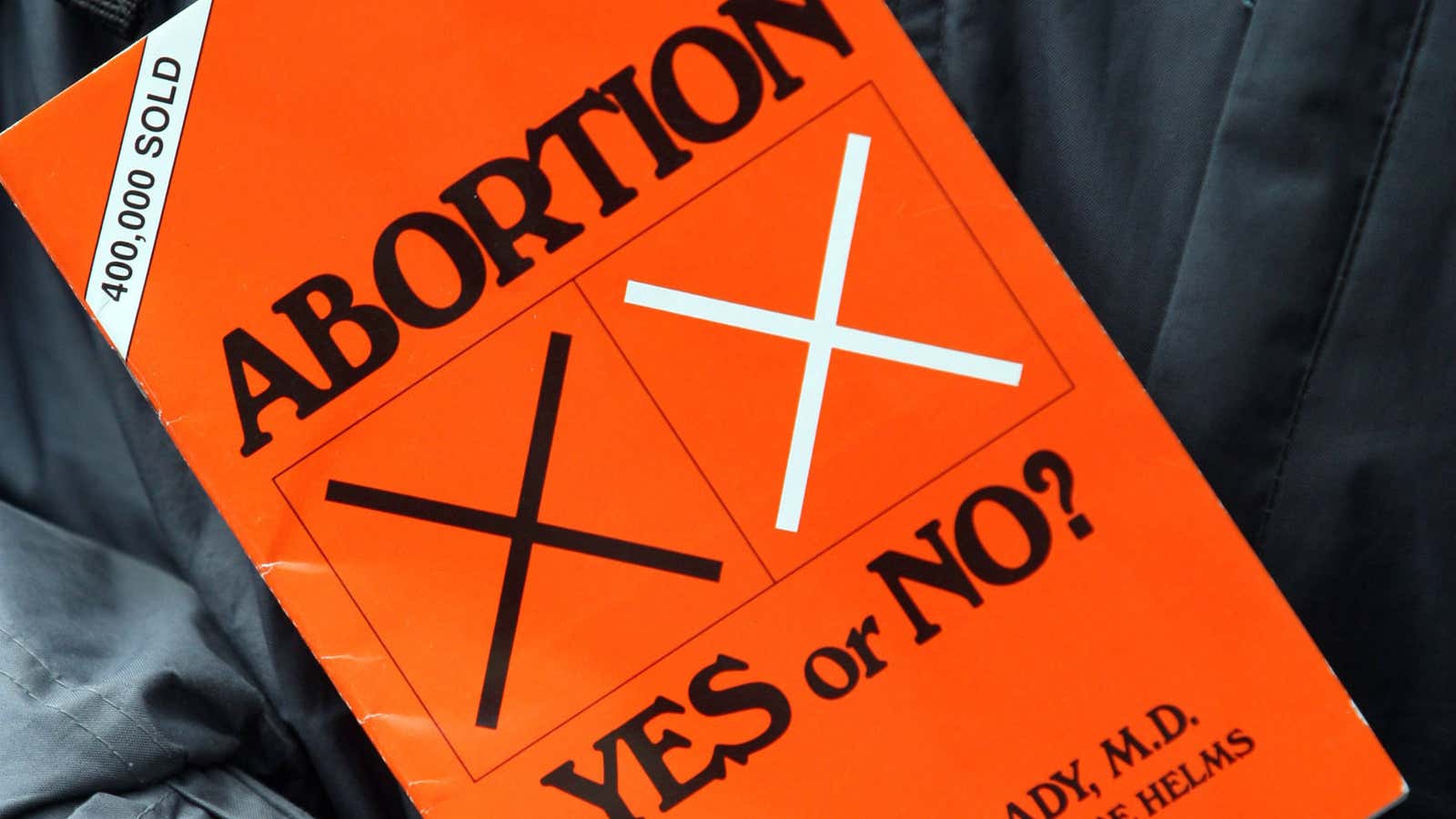The abortion law in Northern Ireland, which bans even rape and incest victims from terminating pregnancies, has been deemed incompatible with human rights, in a landmark High Court ruling in Belfast.
High Court justice Mark Horner, who delivered the verdict on Monday (Nov. 30), said banning abortion in such cases, “prevents any consideration of the interests of the women.” He added:
“She has to face all the dangers and problems, emotional or otherwise, of carrying a foetus for which she bears no moral responsibility and is merely a receptacle to carry the child of a rapist and/or a person who has committed incest, or both.”
The judge also said that those who are pregnant with “fatal foetal abnormailites” should be able to have abortions. Refusing such is a gross interference with the mother’s personal autonomy, he said.
Currently, abortion is only permitted in Northern Ireland if the mother’s life is directly at risk or if continuing the pregnancy would considerably harm her physical or mental health.
Anyone who carries out an unlawful abortion could be jailed for life in Northern Ireland. This forces around 1,000 women a year to travel to Britain to seek abortions, which, said Horner, places “an intolerable financial and mental burden on those least able to bear it”.
The challenge to Northern Ireland’s abortion law was brought by the Northern Ireland Human Rights Commission, which argued that a public consultation on changing the abortion law last year did not go far enough.
Northern Ireland’s attorney general, John Larkin, said that he was “profoundly disappointed” by the ruling and was “considering the grounds for appeal,” according to the BBC. The Department of Justice has six weeks to decide whether to appeal.
Meanwhile, a second hearing next month is needed to decide whether the country must introduce new legislation to enforce the ruling.
